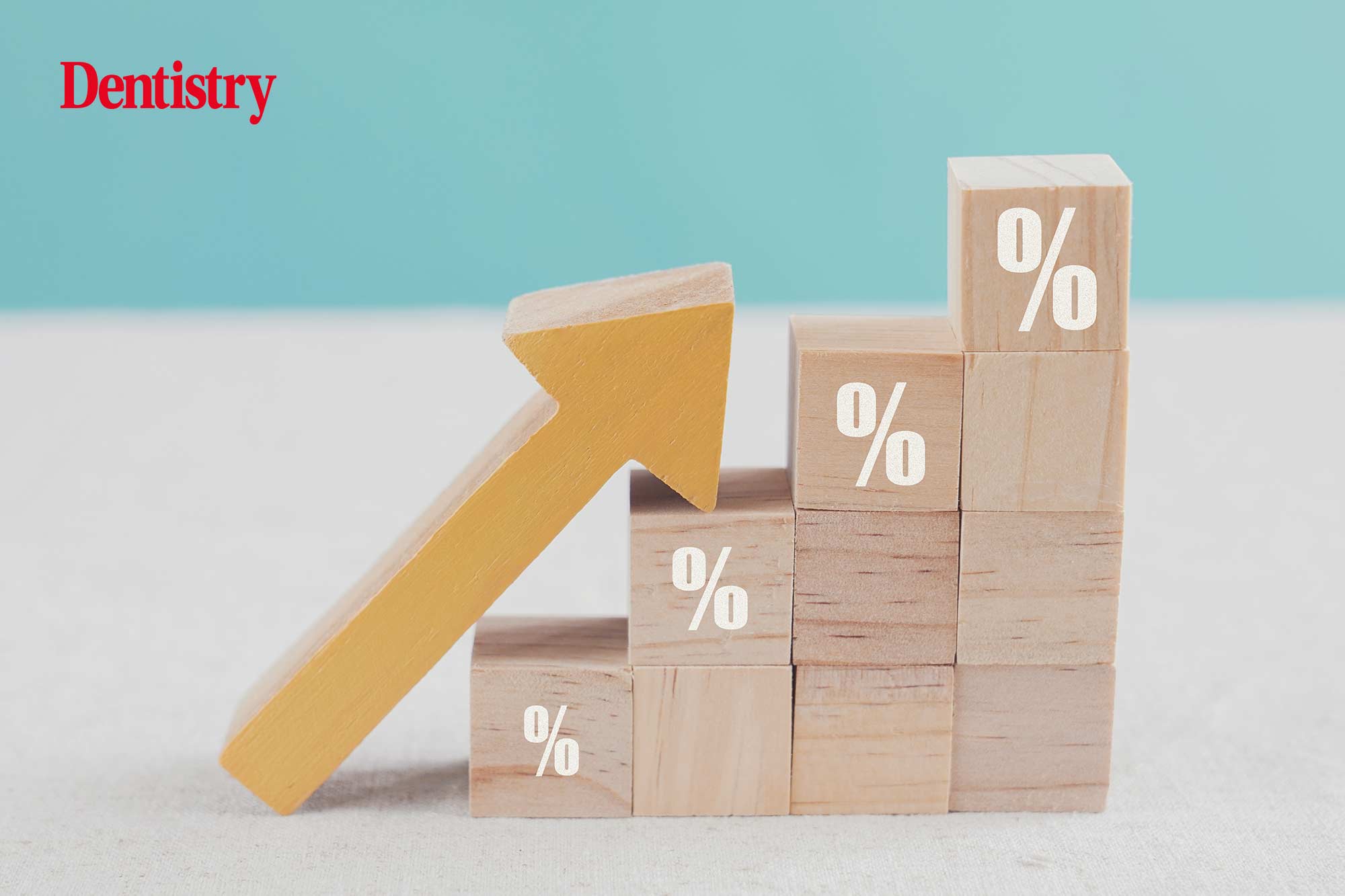 As inflation gets higher, Maaz Sadiq simplifies what recessions and increased interest rates really mean and the impact they will have on dentists.
As inflation gets higher, Maaz Sadiq simplifies what recessions and increased interest rates really mean and the impact they will have on dentists.
The Bank of England just reported that inflation will be around 13% this year.
This essentially means that any and all money dentists have set aside as cash or savings is worth 13% less than last year.
Even more simply, this means your savings will buy you 13% less groceries, cars, houses, practices etc than last year.
If you understand this, you’ll also appreciate why it is absolutely vital that every single one of us takes the time to learn how to invest our savings and buy assets that will grow in real world value, instead of becoming worthless.
In response to this horrific rise in inflation, the Bank of England will increase interest rates to try and dampen its effect on the economy. But in doing so, increasing interest rates will induce a recession.
This can all get confusing very quickly. So, let’s break this down into easily understood terms that we can understand.
After all, we’re dentists, not economists. In addition, most of us despise the excess of financial jargon in this arena!
Recession – a decline in economic activity
All recessions are fundamentally caused by ‘adverse events’.
In the present case, we can confidently put it down to a mix of Covid-19 and world events, such as war in western Europe. This all causes the general public to develop fear and uncertainty with regards to finances so they start holding onto their money and buying less things.
This causes a drop in the economy, which if severe enough, prompts the government to jump in in an attempt to stimulate it and encourage growth. Their typical response is to start printing money which they ‘inject’ into the economy.
I’m sure you can think of some problems with this.
In the short term, it does the job. It prevents certain companies going bankrupt which would cause an even more severe recession.
Unfortunately, the long term consequences are arguably worse. As of 2020, the UK government had allowed the printing of £425 billion. You see, money really does grow from trees.
Fair enough, in the short term it prevents many businesses going under. But what does the printing of this much paper money have on the hard earned money you have saved away in your bank? It devalues it. Slowly and steadily.
This is why, when I was five years old, I could go to the corner shop with a one pound coin and come home with an armful of sweets. But now it’ll barely buy me three Freddos.
So a longer term consequence of money printing or quantitative easing (one of those annoyingly complex terms economists like to use to scare us off) is inflation.
The money that we earn through sweat, blood and often tears, decays in value over time.
A small amount of inflation is accounted for by the Bank of England – roughly 2% per year.
But it hit 13% this year! So, what happens now?
Interest rates – the cost to borrow money
When interest rates are low, companies and individuals can afford to borrow more money. But if there’s not many people wanting to buy things, ie demand, then they just end up with not enough profits to pay for their growing debt.
To prevent this, the government increase interest rates to discourage people from borrowing money. As a result, this causes a further ‘planned’ recession.
The result of a recession?
- Increase in cost of living
- Loss of jobs
- Reduced wages.
The effect on dentists
‘So, Maaz, it’s just a vicious cycle of doom and gloom then? Brilliant.’
Not necessarily.
You see, common sense would indicate that this will mean patients are less likely to buy big cosmetic treatment plans and cost of materials, practice rents and mortgages will increase. In addition, less dentists will be open to buying practices if the cost of borrowing money is so high.
While many of these are true, history and human psychology tells a slightly different story.
No matter how bad an economy, people will always find money for things that they really want.
This is precisely why the cosmetics industry has boomed over the last 20 years with almost zero measurable decline due to economic recessions.
What actionable lessons can we take home?
So what does it come down to?
- Don’t be a victim of geopolitical events and recessions
- It is an associate’s market right now. Good dentists will always be in high demand
- Take charge of whatever you have in your control and maximise its potential, ie invest into assets and marketable skills
- Specifically, learn how to sell ethically to your patients. Learn how to present all of your amazing clinical skills in the most attractive way possible
- There are still and will always be millions of people looking for straighter, whiter, more symmetrical smiles. You just need to show them you can help them get there.
And finally, stop buying liabilities and learn how to buy assets that will put money into your pocket.
I discuss this and many more topics to help dentists start investing on Instagram @drmaazsadiq.
Follow Dentistry.co.uk on Instagram to keep up with all the latest dental news and trends.


